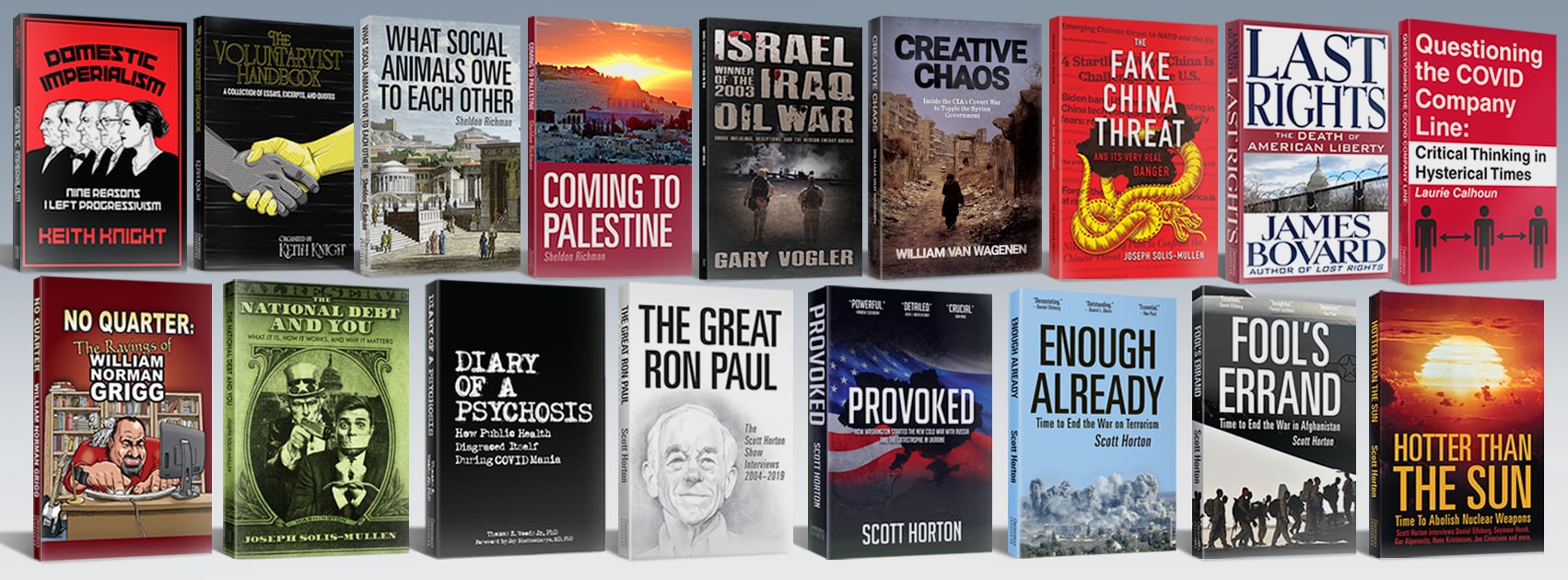The most famous sentence in Adam Smith’s 1776 treatise, An Inquiry into the Nature and Causes of the Wealth of Nations, appears in Book I, Chapter 2:
It is not from the benevolence of the butcher, the brewer, or the baker, that we expect our dinner, but from their regard to their own interest.
It’s a beautifully written sentence (except that he should have twice written “his” instead of “their”). He might have written, “It is not from the benevolence of producers that we expect consumer goods, but from their attending to their businesses.” Ho hum. Who would have remembered it?
More importantly, however, Smith’s sentence pointed to a core truth of full liberalism, or what he called the “obvious and simple system of natural liberty”: namely, you cannot properly own other people and should not act as if you do. That’s the pro-freedom, anti-slavery premise, written about 30 years before Great Britain would begin to stop the slave trade between African chieftains and Europeans, among others. Let’s never forget that while the West did not invent slavery (far from it), the West, uniquely, did invent anti-slavery both in theory and practice. The first anti-slavery organization was founded by Quakers in 1774-75 in Philadelphia, my hometown. English Quakers followed in 1787. No known anti-slavery societies in Africa, Arabia, or Asia have come to our attention.
In his sentence Smith was saying that if you want someone (other than, say, a loved one or friend) to do something for you, you offer money or some product he wants in return. You transact business. The person behind the counter does not exist for your sake, and you should not expect him to work long hours out of duty. He has a life precious to him and need not justify his existence. He is an end in himself, as John Locke had written in the previous century. (Yes, Kant said it too, but for him it was not connected to the pursuit of happiness.)
Smith continued:
We address ourselves, not to their humanity but to their self-love, and never talk to them of our own necessities but of their advantages. Nobody but a beggar chuses to depend chiefly upon the benevolence of his fellow-citizens….
Here I differ with Smith. Self-love, that is, concern with one’s interests, is part of our humanity. No conflict exists between making the most of the one life one lives and goodwill toward others. We are engaged in a common challenge—living—and empathy naturally flows from that fact. It is a pernicious doctrine, indeed, that holds otherwise. Clearly, a merchant or manufacturer prospers by attending to his customers’ preferences. Real liberals have always emphasized the fundamental harmony of interests in the market. The great libertarian journalist John Stossel calls this the “double thank you” that consummates transactions.
I suspect that the word selfish acquired its unfortunate and exclusively negative sense as a consequence—emanating from Jerusalem, not Athens—of a hidden agenda aimed at acquiring power. Smith regretted that moral philosophy had become detached from the Greek notion of the pursuit of happiness. The Wealth of Nations (Book 5, Chapter 1, Part III) includes this passage:
Ancient moral philosophy proposed to investigate wherein consisted the happiness and perfection of a man, considered not only as an individual, but as the member of a family, or a state, and of the great society of mankind. In that philosophy, the duties of human life were treated of as subservient to the happiness and perfection of human life. But, when moral as well as natural philosophy came to be taught only as subservient to theology, the duties of human life were treated of as chiefly subservient to the happiness of a life to come. In the ancient philosophy, the perfection of virtue was represented as necessarily productive to the person who possessed it, of the most perfect happiness in this life. In the modern philosophy, it was frequently represented as almost always inconsistent with any degree of happiness in this life, and heaven was to be earned by penance and mortification, not by the liberal, generous, and spirited conduct of a man…. By far the most important of all the different branches of philosophy became in this manner by far the most corrupted. [Emphasis added.]
He must have had a premonition about Kant, who developed his duty-based moral theory in the following decades. How Smith’s passage relates to his first book, The Theory of Moral Sentiments, I will leave to others. We don’t need to explain empathy in terms of sentiment or impartiality. Rational self-interest will get us where we want to go.
Continuing with Smith’s point about market transactions (Book IV, Chapter 2):
But it is only for the sake of profit that any man employs a capital in the support of industry; and he will always, therefore, endeavour to employ it in the support of that industry of which the produce is likely to be of the greatest value, or to exchange for the greatest quantity either of money or of other goods…. [E]very individual … intends only his own security; and by directing that industry in such a manner as its produce may be of the greatest value, he intends only his own gain, and he is in this, as in many other cases, led by an invisible hand to promote an end which was no part of his intention.
Then Smith goes a step further:
Nor is it always the worse for the society that it was no part of [his intention]. By pursuing his own interest he frequently promotes that of the society more effectually than when he really intends to promote it. I have never known much good done by those who affected to trade for the public good. It is an affectation, indeed, not very common among merchants, and very few words need be employed in dissuading them from it.
People who dislike the market-oriented society seem to despise what Smith celebrated. “It’s not enough to provide wanted goods and services to strangers,” they’d say, “You should do it because you love them.” Profit is seen as a spoiler. In this view, the profit seeker lacks moral worth because he benefits from serving customers. However, that’s a feature, not a bug: in the broader context, the pursuit of self-interest in a free society ultimately benefits us all.
















